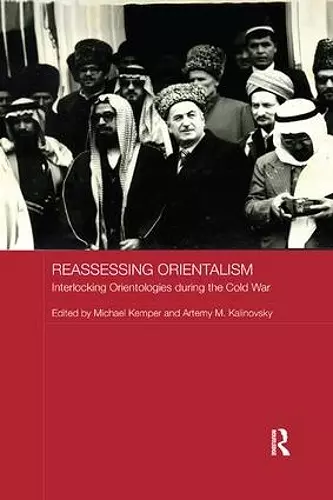Reassessing Orientalism
Interlocking Orientologies during the Cold War
Michael Kemper editor Artemy M Kalinovsky editor
Format:Paperback
Publisher:Taylor & Francis Ltd
Published:25th May '17
Currently unavailable, and unfortunately no date known when it will be back
This paperback is available in another edition too:
- Hardback£180.00(9781138795143)

Orientalism as a concept was first applied to Western colonial views of the East. Subsequently, different types of orientalism were discovered but the premise was that these took their lead from Western-style orientalism, applying it in different circumstances. This book, on the other hand, argues that the diffusion of interpretations and techniques in orientalism was not uni-directional, and that the different orientologies – Western, Soviet and oriental orientologies – were interlocked, in such a way that a change in any one of them affected the others; that the different orientologies did not develop in isolation from each other; and that, importantly, those being orientalised were active, not passive, players in shaping how the views of themselves were developed.
"On their merits individually, and taken as a whole, the contributions in this volume will be of great interest to scholars of Soviet history, the Cold War, contemporary Islam, and academic politics. Kemper and Kalinovsky have set the agenda for scholarly discussions of Orientalism for the near future."
Eren Tasar,University of North Carolina
"On their merits individually, and taken as a whole, the contributions in this volume will be of great interest to scholars of Soviet history, the Cold War, contemporary Islam, and academic politics. Kemper and Kalinovsky have set the agenda for scholarly discussions of Orientalism for the near future."
Eren Tasar, University of North Carolina
ISBN: 9781138102033
Dimensions: unknown
Weight: 362g
248 pages